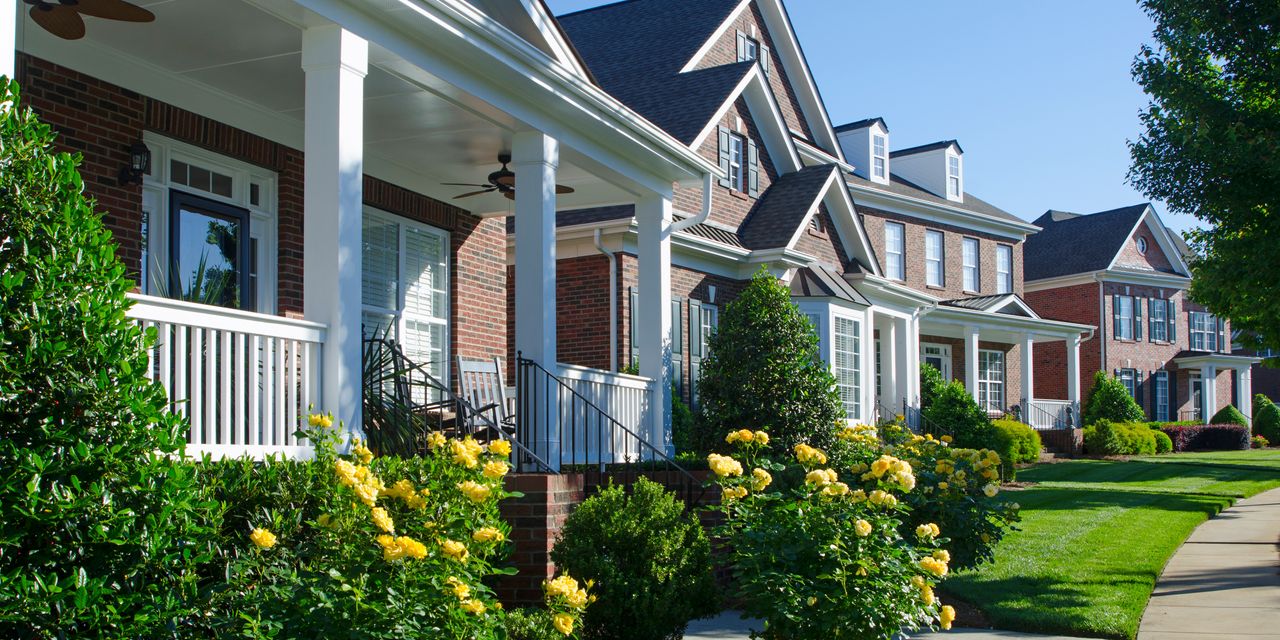On Wednesday, the central bank raised its benchmark interest rate by a quarter percentage point. While it signaled that it was ready to pause, the current economic climate is tense. Bank failures and a possible slowdown in lending are casting a pall over the U.S. economic outlook.
Mortgage rates fell slightly after the Fed hiked rates. The 30-year was averaging at 6.39% as of Thursday, according to data released by Freddie Mac
FMCC,
down from 6.43% the previous week.
While the Fed doesn’t move mortgage rates directly, it influences the direction that they go in. Mortgage rates are determined by the market and how it sees the Fed proceeding — whether it will continue raising interest rates, or slow down. In his press conference, Fed Chair Jerome Powell gave the market and investors reason to believe that he will now back off from raising rates, pushing mortgage rates down.
Economists expect rates to keep falling
Economists agree that mortgage rates will fall over the course of this year, and next.
The Fed’s announcement of a hike was “highly anticipated,” Selma Hepp, chief economist at CoreLogic, told MarketWatch.
She expects rates to decline gradually, though remaining above 6% until late this year. One reason for rates to not fall further: Turbulence in the banking sector, Hepp said. Bank closures and an uncertain economic climate may lead to the sector pulling back on lending, which could put pressure on mortgage rates.
“Nevertheless, homebuyers have been responsive to declining rates since November, while sellers have stayed on the sidelines,” she added.
Mark Zandi, chief economist at Moody’s Analytics, expects the 30-year mortgage to also stay above 6%. Zandi said he expects rates to average at 6.5% this year, but decline by the end of 2024 to close to 5.5%.
“This assumes a weak economy and decelerating inflation, but no recession,” he added.
The spread between the 10-year Treasury yield and mortgage rates are unusually high, Zandi explained. The spread goes towards lenders’ costs from mortgage origination to servicing, credit and prepayment risks.
“This goes to investor concerns about prepayment risk, and will only narrow slowly as the Federal Reserve eases up on its tightening of monetary policy,” Zandi said.
The Mortgage Bankers Association also expects the 30-year mortgage rate to end the year close to 5.5%.
Fannie Mae expects the 30-year to fall to 6% in 2023, and 5.3% in 2024, according to their April housing forecast.
Economists split on home prices
Home prices are expected to stay high, and even rise, as the housing market is hit with a structural problem of low inventory. “Lack of supply amid more buyers meant that home prices rebounded this spring and started increasing again,” Hepp said.
There were fewer for-sale listings this April compared to last year, a separate report from Realtor.com said. The inventory of homes for sale in April dropped 21.3% as compared to 2022. The median listing price rose slightly to $430,000 from $424,000 the previous month.
CoreLogic’s indexes show increases as well, Hepp said. She expects the annual home-price growth rate to average between 3% and 4% this year, as compared to 2022.
But Zandi, on the other hand, expects prices to drop. Looking at repeat sales, Zandi noted that home prices are down 2%-3% from their peak last summer. “Assuming no recession and the mortgage rate path I just described, I expect national house prices to ultimately decline by almost 10% from the peak-to-trough,” he explained.
“This will likely take a couple more years to play out,” he added, “as potential sellers are reluctant to sell their homes for obvious reasons. These price declines are necessary to sufficiently restore housing affordability.”
Fannie Mae
FNMA,
expects home prices to fall by 1.2% this year, and 2.2% in 2024.
Overall, the real-estate industry was not pleased with the Fed’s move to raise rates. “The latest interest-rate hike by the Federal Reserve is unnecessary and harmful,” Lawrence Yun, chief economist at the National Association of Realtors, said in a statement.
He noted that inflation was decelerating, as well as “significant additional monetary-policy tightening already occurring,” via small regional banks pulling back on lending.
“They are becoming zombie-like banks, unable to lend even to good businesses as they are more concerned with balance-sheet shuffling for survival,” Yun said.
“Only by stopping the rate hikes or even a reversal later in the year after verifying much calmer inflation rates will the small banks have a better chance of survival against the big banks,” he added.
Read the full article here


